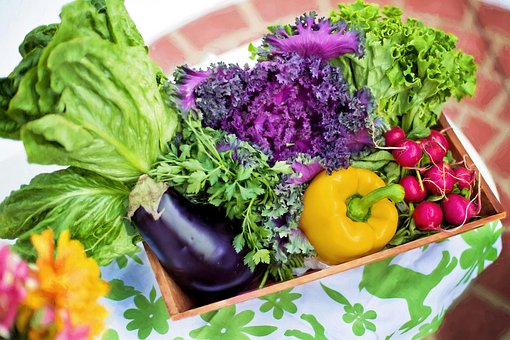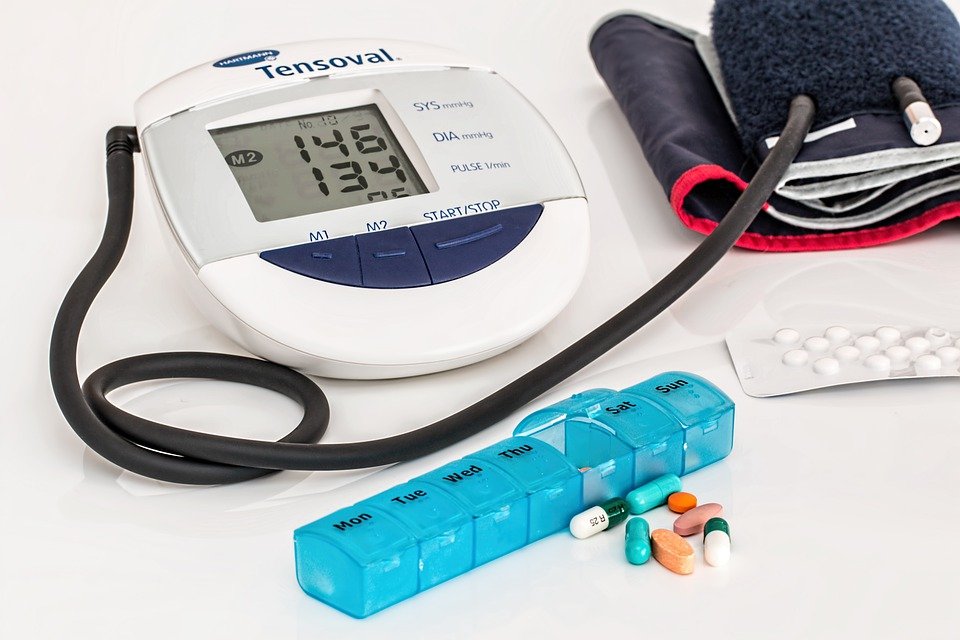
Starting at 51 years old, the dietary needs and physical problems that affect older people need to be addressed. At 60 years old and older, one’s blood pressure tends to increase, while their immune system might not be as effective in fighting off illnesses and infections. The wrinkles deepen and hair changes color to gray or white, or falls out and becomes thinner. Elderly individuals may slowly decrease in size by a couple of inches. Your recent memory retention might not be as sharp as it used to be.
Moreover, numerous individuals endure from severe medical problems, like heart disease and malignancy. It is worrying to see both any lack of weight or excess weight in the elderly. Despite a variety of age-related health issues, a fair amount of elderly individuals remain in reasonably good health and remain active well into their senior years. Eating well is a significant factor in remaining healthy as one grows older. The decisions concerning health and nutrition that are made during the earlier years of life can have an effect on one’s future levels of health and contentment.
Older individuals tend to not take in the suggested numbers of macronutrients and micronutrients needed for keeping a good state of health. Aside from the dietary advantages of having a balanced diet and interacting with experts to recognize dietary boundaries, problem solving approaches and objectives for micronutrients and macronutrients can upgrade the results of dietary interventions in these people. Programs which give lessons in nutrition, especially those which include particular instructions, are successful at enhancing the dietary status of those groups. For those who do not get enough of the major nutrients and minor nutrients from their diet, it is important to follow dietary instructions and to take nutritional supplements when necessary to better one’s nutritional health. Results from randomized tests indicate that dietary plans and nutritional supplementation are capable of remedying nutritional shortages and inadequacies which are significant to the wellbeing of middle-aged and elderly adults. It is essential to check the amount of nutrients that come from diet, dietary supplementation, and fortified food so as not to exceed limits set by the tolerable upper intake levels of particular nutrients and stop any potential negative effects. When determining what dietary improvements and supplements to recommend, one must take into account factors such as past medical history, current medications, existing dietary habits, and other relevant risks.
Non-communicable illnesses that are linked to aging are CVD, specific cancers, and type 2 diabetes. To reduce the amount of sickness and death related to NCDs, preventative measures need to be put in place both before and after symptoms develop. The World Health Organization’s plan to keep older folk safe from illnesses of non-communicable diseases (NCDs) consists of increasing physical activity, decreasing dependency on tobacco and alcohol, and minimizing the risk of malnutrition, which is when the body is not getting its essential nutrients.
Older Adulthood (Ages Fifty-One and Older): The Golden Years
As adults age, there are numerous modifications to their bodies, such as a drop-off in hormone creation, a decrease in muscle mass, and a weakening of strength. As a person ages, the heart becomes less efficient, so it has to work harder for each stroke. The kidneys do not do as well at eliminating metabolic waste products like sodium, acid, and potassium, which can modify the levels of water in the body and present a greater risk of either too much or too little hydration. Immune capacity also deteriorates and vitamins and minerals are not as efficiently absorbed.
Seniors should still eat nourishing foods and stay active. After the age of sixty, deficiencies in nutrition tend to be more frequent, largely due to either decreased consumption of food or problems with the body’s ability to absorb nutrients. The lack of transportation of frail and home-bound elderly affects their ability to obtain healthy, varied foods.
Energy
Since elderly people have less lean body mass and a slower metabolism than younger individuals, they need fewer calories. An energy deficit and weight loss are common problems. The amount of energy needed for individuals who are fifty-one and above is different for women and men, depending on their activity level. Specifically, women should consume from 1,600 to 2,200 calories each day and men should have a caloric intake between 2,000 to 2,800. The lack of physical activity often observed among elderly people also affects their nutritional needs. Incorporating exercise into their lifestyle facilitates a greater consumption of energy and more possibilities that the other nutritional requirements will be fulfilled. It also helps maintain body composition and weight.
Macronutrients
The Acceptable Macronutrient Distribution Ranges for carbohydrates, protein, and fat stay constant as people move from the middle-aged stage of life into the elderly stage. Seniors should replace refined carbs like white bread and white rice with whole grains and brown rice. Fiber is significant in thwarting the likelihood of constipation and diverticulitis, as well as potentially reducing the occurrence of colon cancer. It is necessary to include lean protein in your diet, as well as healthy fats like omega-3 fatty acids. Fat intake should be lower to increase nutrient density.
Micronutrients
Higher intake of certain micronutrients can help keep one well during this period of their life. The requirement for iron is greater due to the fact that it is not being absorbed as effectively as a result of reduced stomach acid. The guidelines for individuals aged 51 and over suggest that daily calcium intake should be raised to 1,200 milligrams as a means of preventing bone deterioration. This needs to be observed by both genders. It is suggested that men and women take 10-15 micrograms of vitamin D daily in order to guard their bones. The advice regarding Vitamin B6 consumption is more elevated for older guys and ladies compared to younger generations, with those over the age of fifty being instructed to take in up to 1.7 and 1.5 milligrams per day respectively to reduce homocysteine concentrations and guard against cardiovascular issues. As people get older, the amount of acid their stomachs create can diminish, causing an overabundance of bacteria in the small intestine. This can interfere with the intake of vitamin B12, resulting in a lack of it. Due to this, seniors should consume more B12 than more youthful adults do, needing an amount of 2.4 mcg daily to keep a healthy brain. Women of advanced age, who have gone beyond menopause, don’t require large amounts of iron and should adhere to a daily intake of 8 milligrams. Folks who are more than fifty years old should consume foods that have a high content of micronutrients and antioxidants.
Nutritional Concerns for Older Adults
Making healthier food choices can help to promote wellbeing in later life and reduce the risk for certain illnesses. It can also help to address a lot of nutritional problems which are common among older adults. Furthermore, there are particular worries regarding nutrition that are applicable to grown-ups in their elder years. Health issues, such as impairment and illnesses, can have an effect on an individual’s nutrition and level of exercise. An example of this is that dental difficulties can result in trouble eating and consuming food, which can then make it challenging to stay on a nutritious diet. Dentures, though not as efficient as natural teeth, or pureeing and mincing foods can assist in resolving this dilemma. In the elderly, there is an impaired sense of thirst and an impaired renal concentration of urine, and this may result in dehydration. Drinking enough fluid is necessary to help the body get rid of metabolic waste. It is encouraged to drink at least six cups of liquid a day, and certain drugs could potentially increase the requirement for additional fluids.
Factors aside from diet can play a role in the dietary choices of elderly people and thus can have an effect on their nutritional wellbeing. Possible factors that could influence an individual’s life could be the type of medications they are taking, mental health (like experiencing depression, difficulty thinking clearly, or having difficulty remembering things), financial resources, physical limitations, and the social aspect (like being without close relationships or being bereaved). A lot of seniors take several medicines that are vital for sustaining their well-being. These medications can have adverse interactions either with each other or on their own, leading to deficiencies in essential vitamins and minerals. As an illustration, diuretics can make you excrete more water, along with certain essential nutrients, while other medications can decrease your appetite. Approximately one in ten to fourteen senior citizens experience depression, which can lead to a reduction in their food intake.
These are some suggestions for increasing nutrient intake in the elderly. Meals should be regular, small and frequent. Foods that can be quickly and conveniently prepared might be ideal to ensure elderly people are getting enough to eat. Different spices and seasonings should be used to make meals more exciting. Partaking in meals with others should be highly regarded since dining is a communal experience. Furthermore, meal preparation and duties should be shared among those who partake in the meal. Utilizing the communal support that is offered to assist with buying and preparing food is highly recommended. Physical activity improves appetite and independence.
Ensuring adequate nutrition in middle-aged and older adults
Research has revealed that a diet encompassing all food groups not just reduces the fatalities from Non-Communicable Diseases in the elderly but also improves physical and mental wellbeing as well as the quality of life. Not many good studies have been done to decide on the best course of action regarding these outcomes. Besides the multiple health advantages of consuming a balanced diet, there are psychological benefits of eating that should not be disregarded. Growing interactions with experts, working out obstructions, creating solutions and settling practical ambitions can upgrade the results of dietary interventions in middle-aged and elderly people. Nutrition education initiatives have been found to successfully enhance the dietary habits of older adults, especially when they contain particular plans or several interactions.
Adherence to the Mediterranean Diet has been found to be linked inversely to mortality in adults aged above 65, and it has been proposed to reduce the number of deaths from all causes, cardiovascular diseases, and cancer. Additionally, a multivitamin/multimineral supplement (MVMS) that supplies most micronutrients in amounts that are recommended can give nutrition aid to those who can’t reach an adequate level of micronutrient intake with their usual diet, particularly to the elderly who may face malnutrition as they age.
Healthcare professionals often suggest Multivitamin Mineral Supplements (MVMS) to seniors and while they are usually considered secure, it has been hard to prove their positive effects on health outcomes definitively. No drop in the risk of having cardiovascular disease was found in the Physicians’ Health Study II. On the other hand, taking multivitamins and minerals (MVMS) each day for an average of 11 years did lead to a notable 8 percent decrease in the likelihood of any type of cancer among male participants who were at least 50 years old. The risk of cancer fell by 12% when prostate cancer was not taken into consideration, and the risk was even higher (27%) in men who had already been diagnosed with cancer. Although the Physicians’ Health Study (PHS) II was drawn out and had a significant sample size with over 14,000 male doctors involved, it did not have enough power to find a statistically meaningful bond between multivitamin and mineral use and any single type of cancer.
The Population-Based Health Study II indicated a noteworthy cut of 9% in the entirety of age-related cataracts and an 11% decrease in cataract surgery. A review conducted by Cochrane Database indicates that the utilization of multivitamins with minerals and antioxidants can potentially slow down the advancement of AMD, or Age-Related Macular Degeneration. It appears that lutein and zeaxanthin, when included in MVMS mixtures, could be advantageous when treating Age-Related Macular Degeneration. A scientific analysis of eight clinical trials which used lutein and zeaxanthin supplementation indicated enhancements in visual ability and contrast sensitivity among individuals with AMD.
Studies of cognition in older adults who use Mobile Voice and Multimedia Services have produced contradictory results. A clinical study with middle-aged and older male participants indicated an increase in episodic memory, like recognizing the context, while a separate trial involving healthy middle-aged and elderly people did not result in any enhancements to mental activity. The two research projects concluded that utilization of MVMS had a beneficial effect on health metrics such as C-reactive protein, liver function, vitamin B6 and B12 blood levels, cholesterol, and homocysteine levels. An analysis of 10 randomized controlled trials (RCTs) which primarily involved adults of middle age and older discovered that daily consumption of multivitamins and minerals had a slight positive effect on certain aspects of memory. A randomized controlled trial in individuals over 50 found that a multi-vitamin/mineral supplement with folic acid, plus vitamins B6 and B12, increased their plasma homocysteine concentrations. Another study conducted in older people who were taking metformin revealed that taking a multi-vitamin/mineral supplement could reduce the risk of vitamin B12 deficiencies caused by the metformin.
It is essential that a Multi Vitamin Mineral Supplement (MVMS) contains only levels of nutrients that are close to the standard intake level. Individuals in the middle-age and senior age range who elect to utilize an MVMS must be alert of the possibility that consuming extra single-nutrient dietary supplements may result in a sum amount exceeding the upper limit of these nutrients, raising the chances of negative health results. Additionally, it is possible that there are some special cases to think of for these demographics. For instance, the amount of calcium normally present in a MVMS is usually not adequate to help maintain healthy bones; thus, it is essential to think about dietary choices.
Conclusion
Research conducted through randomized controlled trials has shown that modifying someone’s diet and providing micronutrient and multi-vitamin supplements where necessary can be effective in reducing the chance of developing nutrition-related health issues in middle-aged and elderly adults. People who don’t get enough protein, fiber, omega-3s and other small nutrients from their typical diet should think about taking dietary supplements. The person’s past medical record, use of drugs, dietary habits, and other potential hazards need to be taken into account before suggesting dietary supplements.














